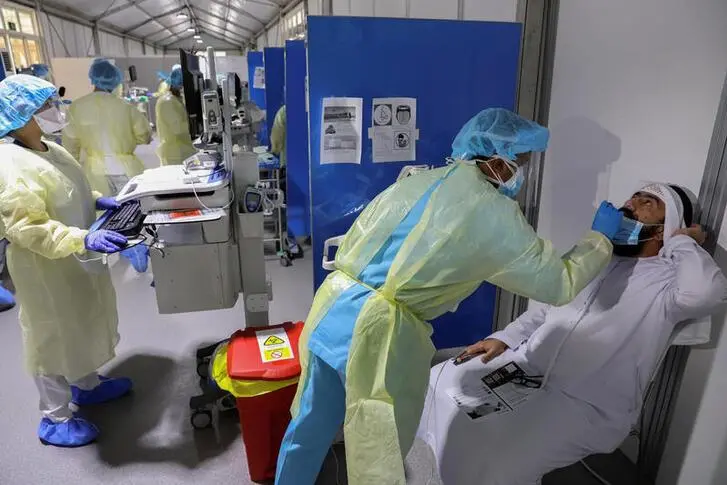PHOTO
Holiday season is upon us. As residents gear up to travel during the break, healthcare specialists share some much-needed advice about protection against Covid-19.
There has been an alarming surge in Covid cases in China, Japan, South Korea, France and the United States. The spike is being blamed on new Omicron sub-variant BF.7, which has also been detected in four Indian states over the last six months. India has even re-introduced random testing at airports.
Doctors advise residents who have already had two vaccine doses, or two vaccine doses and a booster shot, to take another booster shot before travelling.
“Taking the booster shot before travelling might provide better immunity,” said Dr Baljinder Singh, head of the emergency department at Thumbay University Hospital.
Doctors noted that residents must be careful even if fully vaccinated a year ago as the virus is mutating and new variants are possible.
“The BF.7 subvariant which has been found recently is more virulent, has a shorter incubation period, and has greater transmissibility,” said Dr Jyoti Upadhyay, Specialist in Internal Medicine, Aster Hospital, Mankhool.
“Due to extensive immunisation, reinfections, and exposure to various variants, most people have developed hybrid immunity. But as new variants are constantly emerging, it is best to be cautious,” added Dr Upadhyay.
“Travellers should follow the Covid-19 prevention guidelines such as wearing masks in crowded areas. Those with co-morbidities and the elderly especially should abide by this. Make sure you’re carrying your vaccination cards - whether you’ve taken two or three doses - and keep a safe distance while travelling,” said Dr Singh.
Doctors urge people who have flu-like symptoms to get tested before travelling to ensure a safe return if there is a sudden change in the guidelines.
“It is highly advisable to stay at least three feet away from a person who is coughing, sneezing, or showing any signs of flu or viral infections,” Dr Upadhyay.
BF.7 variant
The new variant BF.7 is an Omicron subvariant that first came into play in November 2021. The transmissibility of Omicron is high; one infected individual can pass on the virus to 15-18 people in a short period of time, and there is a possibility that it would not be detected in a PCR test.
The symptoms are the same as other variants: fever, sore throat, cough, body pain, weakness, and headache. BF.7 is currently causing more infections among children and elderly people with low immunity or other chronic medical conditions. Following preventive measures should be enough to keep severe illness at bay, as very few deaths are reported due to this variant.
Currently, there are no guidelines for isolation from the government. If you have flu-like symptoms, take a PCR test, and keep in mind that even if you test negative, you might still be infected. Maintain distance from your family and friends, and wear a mask while following other preventive measures for at least a week.
Copyright © 2022 Khaleej Times. All Rights Reserved. Provided by SyndiGate Media Inc. (Syndigate.info).




















